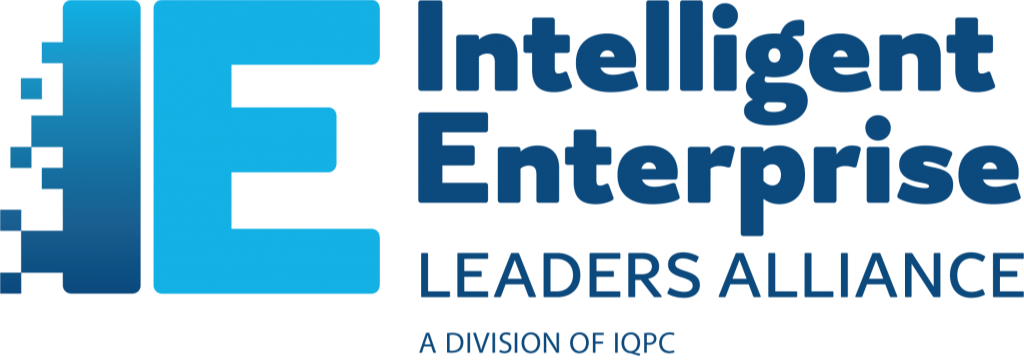Agenda Day 1
12:45 pm - 1:00 pm
CHAIR WELCOME REMARKS & LIVE POLLS
Get to know the audience and participate in interactive benchmarking polls to kick the day off.
1:00 pm - 1:30 pm
OPENING PANEL: Discussing Real-World Learnings from Deploying AI Agents and Key Considerations for Getting Started with Multi-Agent Systems
Katya Hall -
CIO – Health Systems,
McKesson
Hani Batla - CIO/CTO, Adorama
Tommy Gardner - Chief Technology Officer, HP FEDERAL
As the next wave of AI innovation moves beyond individual models to coordinated ecosystems of intelligent agents, multi-agent systems (MAS) are emerging as a strategic frontier. Understanding the opportunities, risks, and architectural implications of MAS is becoming increasingly critical.
This executive-level panel brings together leaders and experts to discuss learnings from deploying AI agents across industries and unpack what organizations need to consider before leveling up to multi-agent systems.
- Assessing learnings from deploying individual AI agents
- Highlighting core principles and use cases of multi-agent systems
- Choosing the right development frameworks and simulation environments
- Understanding governance, control, and risk management in distributed AI systems
- Determining organizational readiness: skills, infrastructure, and data strategy considerations
- Communication, coordination, and conflict resolution strategies among agents
- Key design trade-offs: centralized vs. decentralized control
- Practical lessons from real-world implementations
1:35 pm - 2:10 pm
PRESENTATION: Unlock 100M+ in Impact: The Blueprint for Scaling AI's True Value
Ash Dhupar -
Chief Data & Analytics Officer,
Analog Devices
Making an organization work with agentic AI is not a simple task. It requires a change in technology, skills, workflows, getting on the same page with other tech leaders, and in-depth collaboration with your business owners. Listen in as the Chief Data and Analytics Officer from Analog Devices dives into a recent infrastructure project to assess the blueprint for scaling AI's True Value:
- Understanding the leap from Gen-Ai to Agentic AI and its capabilities
- Discovering the strategic path to achieving 100M+ in business value
- Discussing strategic alignment & use cases
- Why most GenAI fail and the blueprint for success
2:10 pm - 2:45 pm
FIRESIDE CHAT: Does 95% of Enterprise AI Fail?
Harald Ujc -
CTO,
Invenci Inc.
A new report from MIT has sent shockwaves through the enterprise AI world: 95% of generative AI pilots deliver zero return on investment. Join this fireside chat to find out what's going wrong.
- Highlighting differentiators that distinguish the successful 5% from everyone else
- Where enterprises should start to prove value quicker
- Understand when specialization makes sense
- Assessing the trade-offs of build vs buy
- Preventing Pilot-theater
- Dealing with the “shadow AI economy”
2:45 pm - 3:20 pm
FIRESIDE CHAT: Assessing the Future of Human, Augmented Human, and Non-Human Collaboration
Ken Hubbell -
AI Technology Expert, CEO/Co-Founder,
The Pragmatic Futurist
This session provides a practical roadmap for organizations to navigate the integration of artificial intelligence into their core operations. Join us for a conversation that transcends the typical AI hype to deliver genuine insights into human- machine collaboration. Learn about the concept of Augmented General Intelligence (AuGI) which emphasizes technology that amplifies human capabilities rather than competing with them. This session is particularly valuable for leaders grappling with the real challenges of AI implementation - from prompt engineering and bias mitigation to the evolving nature of teamwork itself.
- How to work with AI and human augmentation in the new workplace
- Assessing scenarios of collaboration between humans and AI and the implications for leadership
- Moving beyond AI as a mere tool to AI as a true teammate to unlock unprecedented innovation and productivity
- Critical human skills in an AI world
- Effective strategies to manage fear and uncertainty
3:20 pm - 4:00 pm
PRESENTATION: Scaling Agentic AI: Orchestration and Governance in Enterprise Ecosystems
Rajesh Sura -
Head of Data Engineering & Analytics - North America Stores,
Amazon
- From Experimentation to Impact: Shifting from pilot projects to production-grade adoption, driving measurable business outcomes and cultural readiness.
- Governance & Compliance Frameworks: Building resilient guardrails, trust mechanisms, and audit-ready governance models to align with regulatory and ethical requirements.
- Enterprise-Scale Orchestration: How to design and manage agentic AI ecosystems that seamlessly integrate multi-agent systems with enterprise workflows, ensuring scalability and performance.
4:00 pm - 4:30 pm
FIRESIDE CHAT: Assessing Use Cases in Voice AI
David Casem -
CEO,
Telnyx
4:30 pm - 5:00 pm
CASE STUDY: Using Agentic AI for Good – How Nonprofits Can Benefit
Saritha Ivaturi -
Founder/President,
Code For Good
While agentic AI is transforming industries, its potential for social impact is only beginning to be realized. In this case study session, we spotlight how nonprofits are harnessing autonomous agents to amplify their missions — from optimizing resource allocation to automating outreach, improving accessibility, and scaling operations with limited budgets.
Hear from the founder and president of "Code for Good" how the nonprofit world can benefit from the agentic AI revolution and amplify the work for good. We’ll explore how nonprofit organization "Code for Good" successfully implemented agentic AI to overcome capacity constraints and drive measurable impact in the communities they serve. The session will highlight key design choices, lessons learned, and the unique challenges of applying AI in mission-driven contexts where trust, transparency, and accountability are paramount.
Attendees will leave with practical insights into how nonprofits can responsibly integrate agentic systems to do more good, with less overhead.
- Low-cost, high-impact AI use cases for nonprofits
- Leveraging no-code and low-code
- Designing agent workflows for mission alignment
- Building trust with stakeholders and communities
- Ethical considerations and data stewardship
- Partnering with technologists and funders for sustainable AI adoption
5:00 pm - 5:10 pm
CHAIR CLOSING REMARKS
5:15 pm - 6:00 pm
INTERACTIVE PEER TO PEER ROUNDTABLES
Saritha Ivaturi -
Founder/President,
Code For Good
Manish Nigam - Senior Director, Data Science | Enterprise Data, Analytics & Insights (EDAI), Ameriprise Financial
Join an interactive boardroom* (practitioners only) on a preselected topic and discuss with a small group of your peers your biggest initiatives, challenges, and most effective strategies and tools.
1.ROUNDTABLE: Using Agentic AI to Advance and Accelerate Innovation
Manish Nigam, Senior Director, Data Science | Enterprise Data, Analytics & Insights (EDAI), Ameriprise Financial
Agentic AI is not just a tool for efficiency — it's a catalyst for reimagining what’s possible. This roundtable invites participants to explore how autonomous agents are helping organizations push boundaries, unlock new capabilities, and accelerate innovation across industries. In this highly interactive session, we’ll assess the bold, experimental, and transformative use cases attendees are developing — from automating complex workflows to enabling new forms of creativity, decision-making, and problem-solving. Together, we’ll explore how agentic AI is reshaping the innovation process itself, turning moonshots into roadmaps. Whether you're testing the edges of what AI can do or just beginning to think beyond incremental gains, this conversation is designed to spark new ideas, surface shared challenges, and connect innovators who are rethinking the future with agents at the center. |
2.ROUNDTABLE: How to Safely Use AI: Protecting Consumer and Company Data in an Agentic Era
Saritha Ivaturi, President, Code for Good
As AI systems become more embedded in day-to-day operations, ensuring their safe and responsible use is no longer optional — it’s essential. This roundtable explores practical strategies and guardrails for using AI securely, with a focus on protecting both consumer data and your own proprietary information in an era of increasingly autonomous agents. Join us for a candid discussion on how to evaluate risks, set boundaries, and maintain trust while leveraging agentic AI. We’ll cover real-world cases, common pitfalls, and emerging best practices that can help your organization use AI with confidence and care.
*practitioners by invitation only

Manish Nigam
Senior Director, Data Science | Enterprise Data, Analytics & Insights (EDAI)Ameriprise Financial












